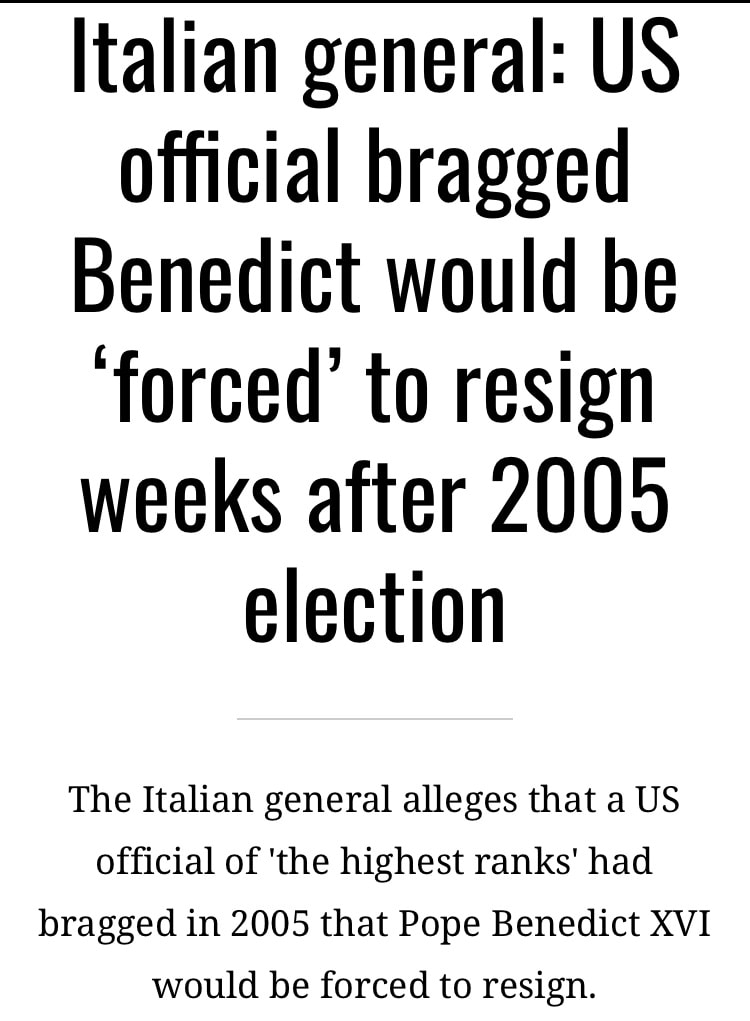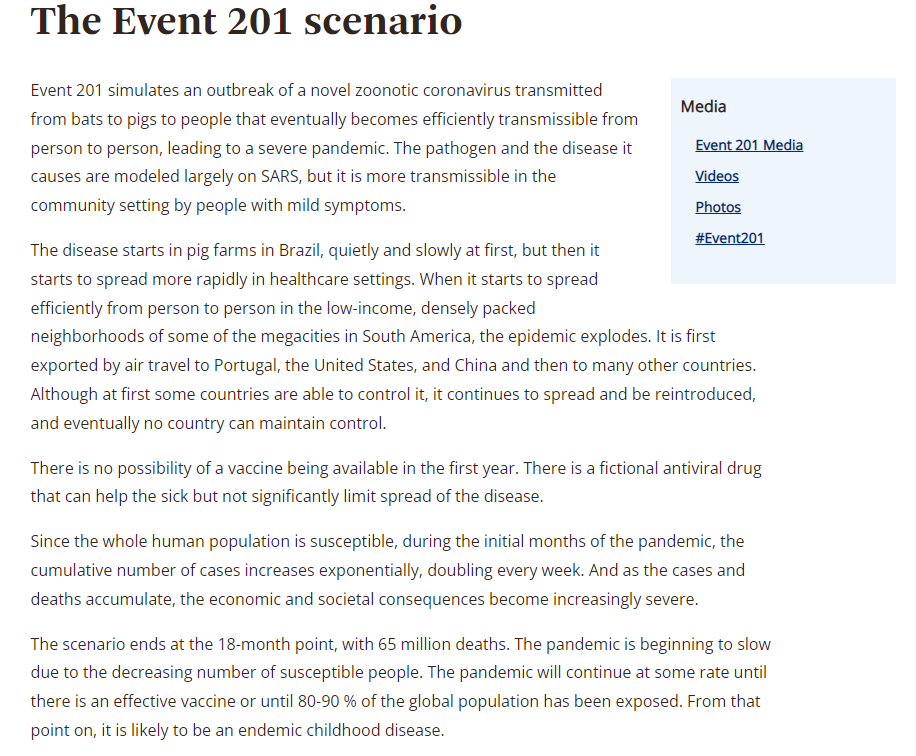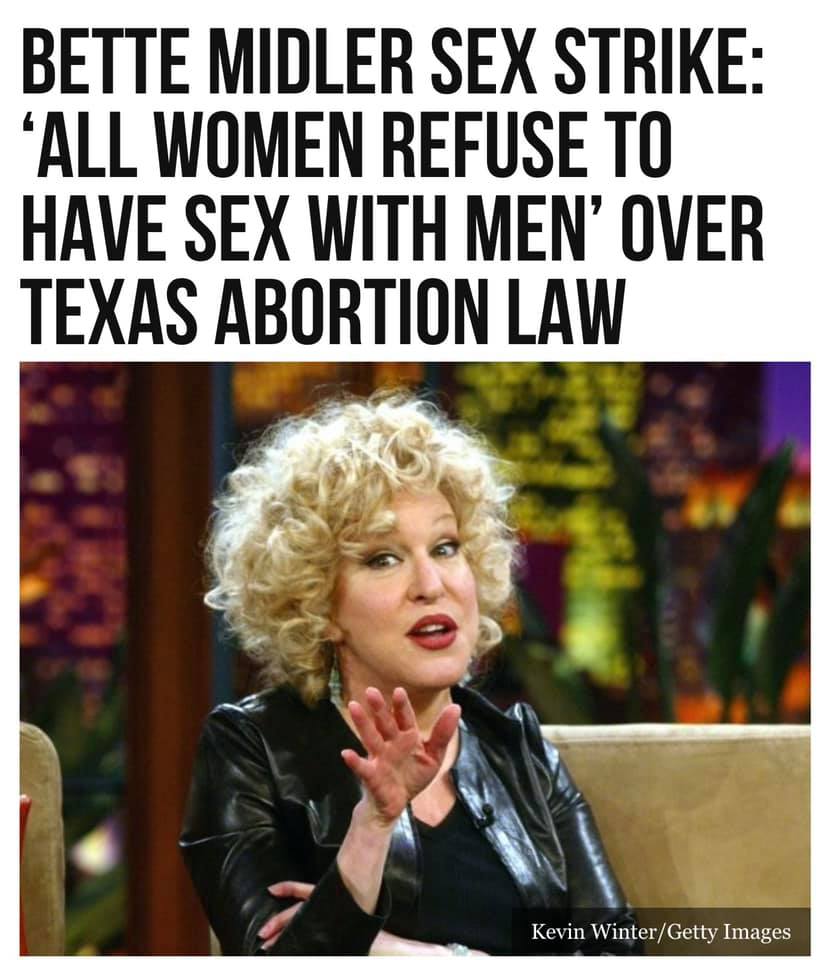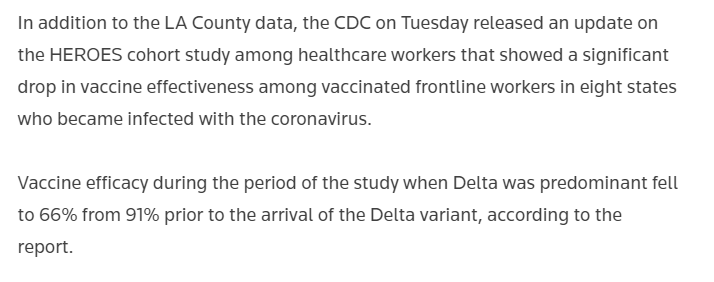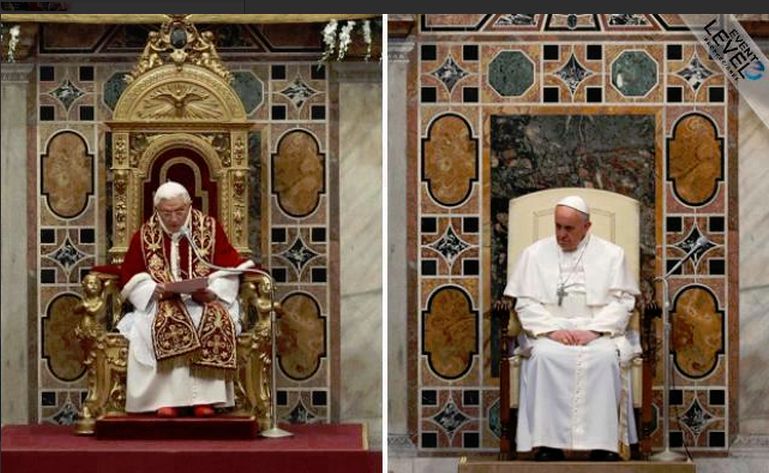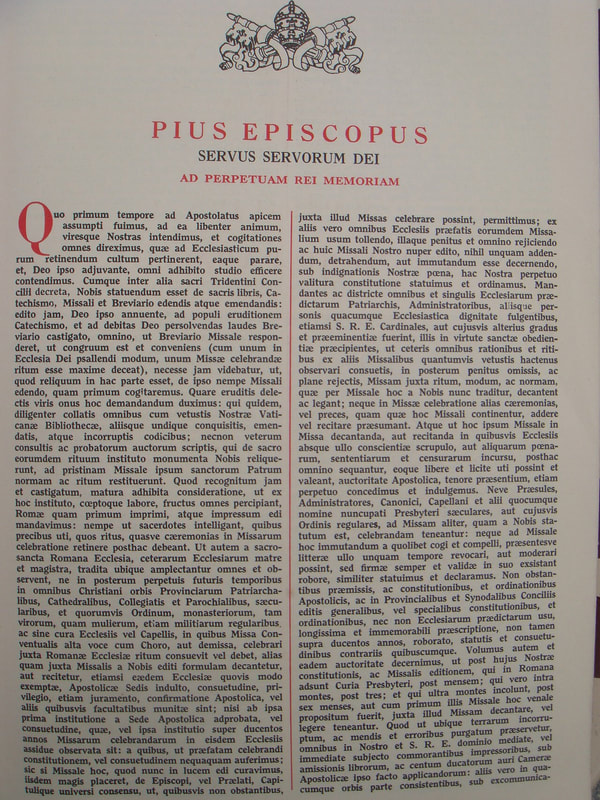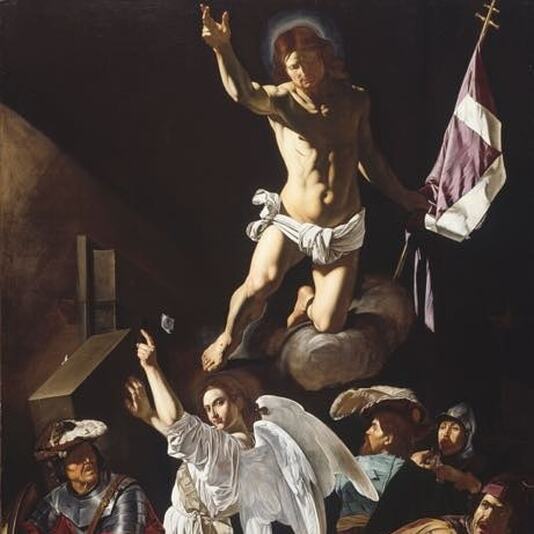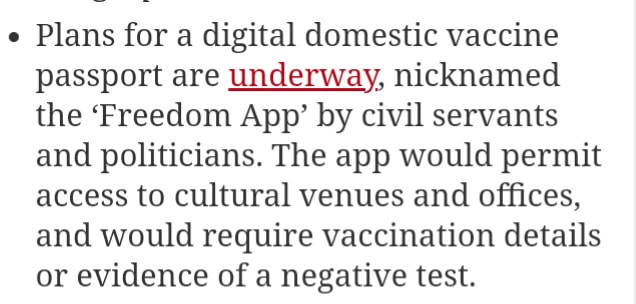|
On the 30th August 1568, Pope St. Pius V issued the Bull Horrendum Illud Scelus, in which he judged that the only fitting punishment for clerics who commit the unspeakable sin of Sodomy was...death. Can you imagine any Post-Vatican II Pope (excluding Francis, of course, since he isn't a Pope) making any such declaration? Of course not! And why? Because it would mean that at least half of the Vatican's clerics would be missing their heads. The Bull is also a reminder of the morality of the death penalty for crimes. Never forget that the death penalty - rather then being opposed to the Gospel as Antipope Francis heretically claims - is absolutely and positively willed by Almighty God and commanded by Him for certain crimes, like murder. I mean, just read what God said after Cain murdered Abel in Genesis. Right there, in the opening chapters of Genesis and at the infancy of the human race, God ordered the death penalty for murder. Therefore, to claim that such a commandment by God is somehow contrary to the Gospel or is immoral or is outdated is blasphemy of the highest grade and, in my books, should merit either having one's tongue cut out or - ironically - having one's head cut off! Below is the Latin and English texts of the Bull. Remember, these are the words of an actual Catholic Pope who didn't shy away from his duty of being the Supreme Pastor of the Church. This isn't a wishy-washy, Vatican II Modernist who thinks the Church started in 1962. This is a real manly Pope who ordered for priests to be beheaded for such crimes as the Church is now reeling from. And why is She reeling from them? Because, like all other things, from Vatican II onwards, the Chruch's authorities became soft of sodomy (naturally, since the Sodomites had infiltrate the ranks of the clergy and were the one's now in charge...and still are!).
Comments
Pope Benedict XVI was the ONE and ONLY Vicar of Jesus Christ from April 2005 - December 2022. He reigned for 17 years. Since his death on the 31st of December 2022, the See of Peter has been vacant, and thus we are in a time of sede vacante. Francis IS NOT the Pope, and NEVER has been. At best, all he is is the Bishop of Rome, but is just an ordinary bishop and not the Vicar of Christ. He governs Rome like your local bishop governs his diocese. And now that Benedict has gone to his reward, I can guarantee that the Dictatorship of the Antipope will only get worse. He will most likely double-down on ramming Modernism on the Church, supressing the Latin Mass as much as he possibly can, and issuing illegal and uncanonical decrees against true Catholicism. Just remember, there is no such thing as two Popes, or 1.5 Popes. There is only one Pope, and it sure isn't Francis. In theory, after Francis disappears from the scene, the next Conclave should be canonical and the Pope it elects will be the true Pope and the true successor to Benedict. Please God. But also keep in mind that the Church has gone well over two years without a Pope. Several times, in fact. But, contrary to the 1958 Sedevacantists, the Church would never go near 70 years without a Pope. That's just absurd. Below is a cross-post from Ann Barnhardt explaining things. She can put into the written word the situation we are in far better than I can. [Original article here] - The Inquisitor “Pray for me, that I may not flee for fear of the wolves.” MASS, IMPOSITION OF THE PALLIUM AND CONFERRAL OF THE FISHERMAN’S RING FOR THE BEGINNING OF THE PETRINE MINISTRY OF THE BISHOP OF ROME HOMILY OF HIS HOLINESS BENEDICT XVI St. Peter’s Square Sunday, 24 April 2005 FEAR. FLEE. WOLVES. A resignation made out of grave fear that is inflicted unjustly or out of malice, substantial error, or simony is invalid by the law itself. -Canon 188 The Pope is bound to Canon Law insomuch as Canon Law is derived from DIVINE AND NATURAL LAW. All three provisions of Canon 188 are derived from Divine and/or Natural Law.
Canon 188: A resignation made out of grave fear that is inflicted unjustly or out of malice, substantial error, or simony is invalid by the law itself. Okay, just off the top of my head here, Coercion would be against the Fifth Commandment if it involved any threats of violence of death. It would also be against the Seventh Commandment as a form of stealing; stealing of the Office itself, and possibly stealing of a man’s right to his reputation if threats of detraction are involved (aka blackmail of the guilty). If the coercion is in the form of blackmailing of the innocent, this would be against the Eighth Commandment because it would be bearing false witness. Substantial Error: Can the Pope make 2+2=5? No. Can the Pope make any number that is not 1 equal to 1? Can the Pope make 2 = 1? Of course not. This is a clear breaking of the Natural Law, of which arithmetic and logic are subsets. Simony: To accept a bribe or payoff in exchange for attempting to resign the Papacy would be not merely the coveting of money, but is even moreso a sin of IRRELIGION, a sin against the FIRST COMMANDMENT itself because it is the buying and selling of a spiritual thing, namely, in this case, the exercise of an ecclesiastical jurisdiction – the Papacy itself. Now here is the $64,000 question: Do you honestly believe that the Pope has the ability to ABROGATE THE TEN COMMANDMENTS and/or THE NATURAL LAW? If the Law is derivative of GOD HIMSELF, being perfect good, truth and justice, and Jesus Christ EXPLICITLY bound Himself to the Law when He gave Peter the Keys, saying: And I say to thee: That thou art Peter; and upon this rock I will build My Church, and the gates of hell shall not prevail against it. And I will give to thee the keys of the kingdom of heaven. And whatsoever thou shalt bind upon earth, it shall be bound also in heaven: and whatsoever thou shalt loose upon earth, it shall be loosed also in heaven Does it make any sense whatsoever that the Pope can override the very ESSENCE of God Himself, namely truth, goodness, justice and RATIONALITY? That the Pope can do that which even God Himself cannot and would not do given that God is pure goodness, truth, love and justice? If so, then what EXACTLY is the stable base upon which EVERYTHING exists? How can Peter be The Rock if Peter is NOT anchored to The Divine and Natural Laws, which is to say to Christ Himself? If you take away the Earth (God Himself, the Rational Logos) what, exactly is the Rock (Peter) going to sit upon that The Church is then subsequently built upon? If the Divine Law is mutable and overridable, and even the Natural Law can be casually tossed aside (any positive integer greater than 1 can equal 1 if it suits the Pope’s error), then how can God be rational? Is the first verse of St. John’s Gospel, proclaimed at the conclusion of almost every Tridentine Mass, in error? Is Christ NOT the Word, the LOGOS?? Like I said, this all sounds very, very suspiciously like the islamic political system and its irrational, pure will tyrannical satanic fake deity crap. Red flag much?? Maybe worth a rethink? The Pope is absolutely bound by Canon Law insomuch as a given point of Canon Law is simply a derivative recapitulation of Divine or Natural Law, which Canon 188 is in every particular. To argue otherwise (if you can even call it that) is madness, and of the Enemy. The fact that Pope Benedict has been dead for eight days, or ANY amount of elapsed time, makes absolutely no difference with regards to the importance of publicly acknowledging the situation. TRUTH HAS NO EXPIRATION DATE. The statement that could end the Bergoglian Antipapacy has not changed a single iota with the death of Pope Benedict, because his earthly presence is not required to adjudicate the validity of the juridical act of the putative resignation that he proffered in February ARSH 2013. Only his words and deeds in February ARSH 2013 are legally germane, and we have a thorough record of that. So, we keep up the good fight to have the TRUTH publicly acknowledged. Let it ALL come out. “Significant Canonical irregularities have been identified with regards to the putative resignation proffered by Pope Benedict XVI in February of 2013. Pending further investigation, a state of emergency suspense is hereby declared.” I hope this helps. Love therefore is the fulfilling of the Law. Plenitudo ergo legis est dilectio. Here's something you'll never hear from a modern bishop.
In his Encyclial Libertas Praestantissimum, Pope Leo XIII teaches us: 21. This kind of liberty, if considered in relation to the State, clearly implies that there is no reason why the State should offer any homage to God, or should desire any public recognition of Him; that no one form of worship is to be preferred to another, but that all stand on an equal footing, no account being taken of the religion of the people, even if they profess the Catholic faith. But, to justify this, it must needs be taken as true that the State has no duties toward God, or that such duties, if they exist, can be abandoned with impunity, both of which assertions are manifestly false. For it cannot be doubted but that, by the will of God, men are united in civil society; whether its component parts be considered; or its form, which implies authority; or the object of its existence; or the abundance of the vast services which it renders to man. God it is who has made man for society, and has placed him in the company of others like himself, so that what was wanting to his nature, and beyond his attainment if left to his own resources, he might obtain by association with others. Wherefore, civil society must acknowledge God as its Founder and Parent, and must obey and reverence His power and authority. justice therefore forbids, and reason itself forbids, the State to be godless; or to adopt a line of action which would end in godlessness — namely, to treat the various religions (as they call them) alike, and to bestow upon them promiscuously equal rights and privileges. Since, then, the profession of one religion is necessary in the State, that religion must be professed which alone is true, and which can be recognized without difficulty, especially in Catholic States, because the marks of truth are, as it were, engraven upon it. This religion, therefore, the rulers of the State must preserve and protect, if they would provide — as they should do — with prudence and usefulness for the good of the community. For public authority exists for the welfare of those whom it governs; and, although its proximate end is to lead men to the prosperity found in this life, yet, in so doing, it ought not to diminish, but rather to increase, man’s capability of attaining to the supreme good in which his everlasting happiness consists: which never can be attained if religion be disregarded. Divine Providence
It has been two weeks since my first edition of The Inquisitor’s Diary, and a couple of unexpected events have happened at my workplace that could have only been the work of Divine Providence. I have noticed in the past few years that, in regard to myself, the Lord seems to precede a good that He is about to bestow upon me by first making me suffer some temporary evil. The Tuesday after I posted my first edition of this Diary, my friend with whom I worked with both at our old company and the new company that we both started at this past May 2022, was suddenly called into the manager’s office and essentially fired. I had no idea that such a meeting had occurred as I was busy trying to fix a minor issue with one of the machines I was using at the time. My friend storms past me in anger raving about going home due to a mistake, and I have no idea what happened. Suddenly, I get called into the manager’s office and, naturally, think that something bad is about to happen. On the contrary. The manager wanted to let me know why he had to let my friend go, and because he knew we were friends, he wanted to make sure I was in possession of the facts. He knew (and indeed it came to pass) that my friend would give me his version of events, but I already had knowledge of everything. During this meeting, the manager expressed concern that I might follow my friend in leaving. I assured him that I wouldn’t. He ended by reminding me of what he said in my review the Friday prior, namely, that I had impressed everyone, including himself, and that he valued me and didn’t want me to leave. And that was that. Naturally, I was a bit sad that I wouldn’t have my friend to work with anymore. Fast forward to this Thursday just gone, and I get called into the manager’s office again. This time, he informed me that one of my colleague’s who does all the admin for my shift is moving to the morning shift, and thus the admin post would be vacant. After consulting with my supervisor, he said that I was the first and only candidate he could of think of that would suit the position. I informed him that I did have a background in admin, which he didn’t even realise and that pleased him very much. After providing me with a list of the duties for the position, he asked me if I was interested in the position, and I affirmed I was. And so, I was promoted to the role of administrator. I began my training that very day with my supervisor. So, the Divine Providence so worked events that after my friend left, I was promoted. I have no doubt that I probably wouldn’t have been promoted if my friend was still there. Forgiving of loans and debts. A debate has arisen in the US regarding the forgiving of student loans. The Biden Administration is seeking to forgive around $10,000 in student debt for millions of Americans. The Guardian newspaper (a British Leftist newspaper) reports that “[a]bout 43 million Americans have federal student debt, with an average balance of $37,667, according to federal data. A third of those owe less than $10,000. Half owe less than $20,000. The total amount of federal student debt is more than $1.6tn.” That amount, $1.6trillion, is bigger than the Australian economy! American conservatives claim that such cancellation of debt is essentially Socialist. Perhaps these same conservatives - most, if not all, of whom are purported “Bible believing” Christians - need to re-read their Bibles, for in it they’ll find that God instituted the Jubilee Year amongst the Israelites, which was held every 50 years during which all debts were forgiven. If such forgiveness is Socialist, what does that make God Himself? I think American conservatives need to re-think their argumentation. The casual American use of “Socialist” and “Communist” against anything that isn’t American corporatism or consumerism is rather annoying. The Church v the Antichurch Antipope Francis continues his assault on the Bride of Christ. The amount of evil he gets up to is far more than I can write about, but here’s a nugget (aside from his continuing to destroy the Latin Mass and promote his Synod on Synods): He gave the red hat to one Bishop McElroy of the Diocese of San Diego. The said Bishop is a known cover-upper of child sex abuse and has even put a sodomite priest back into parish ministry! Once again, the Antipope shows his true colours. He has no problem promoting evil men to such influential positions in the Church, because he himself is an evil man. Not misguided. Not a bumbling fool. Pure and plain evil. And I’m becoming certain that he really might be the False Prophet Forerunner of the Antichrist. The Cost of Living Crisis Once again, we are treated with news of the increasing crisis with the cost of living. Here in the UK, the energy regulator – Ofgem – has increased the energy price cap to near £4,000 a year. We’re told it’ll go up again in 2023. Let us remind ourselves when we hear all this economic doomsaying as to why we are in this situation: aside from the fact that our financial system is literally designed to implode, it isn’t helped by the fact that our respective governments decided to commit economic suicide in 2020 by locking everything down. Anyone with half a brain cell could have predicted the fallout we are now experiencing. But, at the time, it was a conspiracy theory to say such things. Now it’s a conspiracy fact. How ironic. However, such financial crises as these remind us of the sobering fact that we should not put our trust in men, but in the Lord. I have consecrated all my possessions, as well as my finances and myself, to Our Heavenly Mother, asking Her to bless me with good things and with only those things which are conducive to my salvation, and to intercede for me that during these says of uncertainty to, as far as reason and the Lord’s Will permit, to grant me financial stability and to grant me relative comfort. Again, as far as is conducive to my salvation. I’m not asking to be stupidly rich (though chance would be a fine thing). Only to be stable and have – as far as God permits – little to no financial worries. So far, I have found that doing such things as consecrating my possessions to Our Lady actually works. I usually don’t have to worry too much about money. And, as noted above, I’ve been promoted which has the bonus of a slightly bigger salary. I’d highly recommend that you consecrate your possessions and finances to Our Lady. Note: Due to my busy work schedule, I am unable to commit to writing articles every day, or even every other day. Instead, I will collate commentary in a Diary version (something I'm borrowing from a magazine I subscribed to until recently). Each edition will be of varying lengths depending on what I'm commenting on. I will try to include a bit of everything to balance it. I hope you enjoy reading it.  What the Satanic Elite are planning is totally public The quote on the left is just one example from an ocean of literature that publicly documents what the Satanic Elite are up to. It sounds awfully like what is going on. For nigh two years we were all told to be scared out of our wits about a virus that turned out to not be the Plague 2.0 that it was made out to be. The lockdowns, mask mandates etc., all turned out to be what many of us were saying at the time...destructive and suicidal to the state. The DeathJabs are now proving to be the toxic, deadly, DNA altering poisons we warned people about. And now, inflation is through the roof. Why? Because prices have gone up. And why have they gone up? Because our collective governments thought it a jolly good idea to print tonnes of money (or at least, press a load of zero's into a database to simulate money) which in turn has devalued our currencies, thus causing prices to go up. Example: my 50p bottle of milk is now £1, not because the quality of the milk has increased, but because my currency has halved in value thanks to government flooding the financial scene with more money. Of course, the governments of the now suicidal West are blaming the War in Ukraine on some of the problems. Our energy prices are sky-high because of Russia...even though we actually take very little from them. As usual, we are all being fed a lie. The Elites already had the DeathJab waiting for rollout, they just needed an excuse. They already were going to wreck the economy, they just needed a reason. It's Problem-Reaction-Solution: They manufacture a problem, control the public's reaction via media, and then impose the solution they already had waiting. UK Heatwave and People's Stupid Response We are currently experiencing another heatwave in the UK where the temperature is over 30C again. As someone who can't stand anything over 25C, this is akin to being in Hell for me. Ironic, considering that I was recently diagnosed with a Vitamin D deficiency so I am taking Vitamin D supplements. You'd think I'd be out there in the sun for a top up. Alas, I can only tolerate the hot sun for a short while, after which....see ya! We're told our recent heatwaves are due to Climate Change. Naturally, if anything happens out of the ordinary with the weather, it's Climate Change. And considering I live in a country where the weather is extremely temperamental at times, that out-of-the-ordinary phenomena is quite frequent. I'm waiting to see if our winter is anything out of the ordinary. If so, the Climate Alarmists will be out in force again. And speaking of Climatism, why is using electricity to warm your home or cool your home bad for the environment, but using that same electricity to charge your Tesla isn't bad for the environment? Another case of the elitist "it's okay when I do it" mentality. We are also having a drought, we're told, leading to people panic-buying bottled water. Just stop and think about that for a moment. People are panic-buying bottles of water when they already have drinkable water at home via their taps! And how can we be having a drought when we're an island surrounded on all sides by water?! Hasn't Her Majesty's Government heard of desalination - turning sea water into drinking water? How is it possible that we - the once masters of the seas - can't process sea water? It boggles the mind how we're ruled by such babbling clowns, but then I remember that democracy is a sham and our politicians are puppets installed by the Elite. Just look at Joe Biden, for Heaven's sake! Housework and Prepping I have been slowly re-arranging my home and storing things in proper places. Mainly, I have been buying collapsible storages boxes and putting them everywhere. So far, I have used them in the living room and I'm about to set them up in my kitchen. They are fantastic. They are also going to be used in my wardrobes to keep my clothes in neat places. Whilst tidying up, it sprang into my mind to turn one of my small storage cupboards into a pantry and stockpile foodstuffs. What with the rising prices and no doubt the further break down of supply chains, it may get a bit hairy when one attempts to buy food. So, I've been slowly looking at foods I can buy and which will last for a while. I've been advising friends do the same thing as well. Nothing dramatic, but just quietly prepping for whatever may get thrown against the fan. I'm also stockpiling things like candles, batteries, matches, etc. I am trying to (un-successively) move away from electricity as much as I can. I've even gone to switching my internet off when I leave for work and when I go to bed. I know actually doesn't save much money, but at least it disconnects me from the noise on the interwebs. I have a ton of books to read - both Catholic and secular - and I've gone anywhere near them due to my confessed internet addiction.  Bible In A Year One of the practises I got into and then fell out of as quickly - and which I am struggling to get back into - is the Bible In A Year podcast by Ascension Press. It became the #1 Podcast in the world on Apple. It's literally a priest reading portions of the Bible every day for a year. I did end up buying Ascension Press's Bible and their BIAY Companions. They've now come out with a notebook. I wished they did that earlier as I've already got my own notebooks that I am working in! I listen to the podcasts on Hallow (see image left), a fantastic Catholic app that has a ton of content. It even has hymns and Gregorian chant for prayer, studying, etc. They also have audio rosaries (I use these as I'm terrible at praying the Rosary by myself and I can also pray along whilst doing chores...especially with my Bluetooth speaker), novena's and even reading challenges. If you don't have Hallow but are interested in the BIAY, you can find the episodes on Youtube. Ascension have recently announced that from January 2023, they are doing the Catechism In A Year. I'm still debating on whether follow this podcast, since the recent editing of the Catechism isn't very appealing. And plus, I prefer the older Catechisms are they are much easier to understand and you don't get doctrinal indigestion! The CCC has some rather chunky paragraphs that look extremely unhealthy. A simple question and answer for me, please. Next to all that, I have taken up the Imitation of Christ and something called Christ in the Gospel, which is a small book with all the Gospels in chorological order with a reading for each day. It helps me to meditate for a about 15 mins on what Christ did and how He is speaking to me now. Feast of the week The 15th August is the Feast of the Assumption. It is the principal feast of Our Lady, as it the crowning of all her graces and the epitome of her glory. On this day, Our Lady was assumed, body and soul, by her Divine Son into the glories of Heaven, to the praises and singing of the Angelic Host whereupon, as follows the Glorious Mysteries of the Rosary, she was crowned Queen of Heaven and Earth. Here in England, we are celebrating the feast twice: on Sunday as an External Solemnity and on Monday as the Feast Proper. The 16th August is the feast of St. Joachim, the Father of the Blessed Virgin Mary and Grandfather of Jesus Christ. He and his wife, St. Anne, lived in Nazareth. They were old in years and were sort of derided for having no children: a sign of God's judgment in Jewish culture. After much prayer, St. Anne eventually conceived the Blessed Virgin Mary, who was preserved free from all stain of Original Sin by Almighty God in view of her great role as the Mother of God. Thus, St. Joachim was the Grandfather of God, and no doubt spent many happy days with his Divine Grandson. May he intercede for all fathers and grandfathers, especially those who have no children, that they may be blessed by Almighty God, if not with children, then with an abundance of grace and a happy and holy marriage. One of the fundamental foundations to modern Western philosophy is Transcendental Idealism. It is a philosophical system founded by the German philosopher Immanuel Kant in the 1700's.
Kant's philosophy argues that "the conscious subject cognizes the objects of experience not as they are in themselves, but only the way they appear to us under the conditions of our sensibility. Thus Kant's doctrine restricts the scope of our cognition to appearances given to our sensibility and denies that we can possess cognition of things as they are in themselves, i.e. things as they are independently of how we experience them through our cognitive faculties." In layman's terms, Kant argued - against the standard philosophy at the time rooted in that of the great Angelic Doctor, St. Thomas Aquinas - that man cannot know what objects actually are. An example to help illustrate: According to St. Thomas Aquinas, when a man observes a door, his senses independently pick up the appearances of the door, such as what it looks like, how it sounds, what it feels like, what it may smell like, and even what it may taste like if he were to lick it. These appearances - called "sensible phenomena" in philosophical jargon, or appearances as they are received by the senses - then carry to the intellect (a faculty of the soul) where the intellect connects the data together to form an understanding of the door. The same is true if one looks at any object. We all know, for example, of what a tree is, or what a cat is, etc. In short, our minds conform to the reality of the object we are focused on. Kant, on the other hand, would claim that despite our senses picking up the phenomena of the door, we can't really say it's a door since we can't see past the sensible phenomena. In other words, the door may not actually be a door. It may actually be, in substance, a jellyfish. An outrageous claim, but you get the point. If Kant were alive today, he might say that if the door were a living, rational being, it might not identify as a door. Now, can you see where this is leading to, yet? Yet, in a strange twist, even though in principle Kant would deny that the door is actually a door, in practise he would admit it's a door, since he would have to use the door to enter or exit the room. He already knows he can't walk through the walls! So, what we have with Kant is a philosophical mush that says, in effect: The door is only a door when I need it to be a door. Otherwise, I don't know what it is (again, sound familiar?). Fast-forward to today, and we can see the effects of Kant's mush on society. Three extremely apropos examples of Kant in action: 1. The worshippers of Moloch (i.e. pro-aborts) will claim that the growth inside a woman's womb isn't a human baby, but only a clump of cells. Therefore, it can be sliced and diced and sucked up a tube. However, when the abortionist needs to sell the organs of this clump of cells, he doesn't market them as the organs of a clump of cells, he markets them as the organs of a human baby. Thus, the baby only becomes a baby when the abortionist needs it to be a baby in order to sells its organs. Otherwise, it's just a clump of cells. 2. Leftists today are unable to define what a woman is. We hear them tell us this (ironically, including women!). Yet, if you shut down abortion, all of a sudden these same Leftists will accuse you of attacking women's rights, even though they don't know what a woman is. Or rather, they will only define womanhood when it's convenient to promote abortion or feminism, but otherwise they can't define womanhood. (Question: if a transwoman (man-into-woman) can't define what a woman is, how do they know if they've become a woman?) 3. The Transgender movement claim that gender doesn't exist. Yet, they also claim that you can change your gender and even identify as one of a hundred genders - even though gender doesn't exist. Rather, gender only exists when they need it to exist in order to promote their abhorrent ideology (have you watched What Is A Woman?). Thus, we see how Kantianism is the bedrock of Leftist Ideology. Its premise is the total rejection of reality - except when reality is needed to promote some perverse cause. This waxing in and out of reality is sure to contribute to the global insanity we observe all around us. And this thought has infected all facets of societal life, most especially politics. We see, then, that from a human point-of-view, total mush being pushed as serious philosophy has driven modern man completely bonkers, laying the foundation for Leftism and then feeding it afterward. The antidote is for a return to St. Thomas Aquinas and his philosophy that is rooted in Reality - which is none other than Our Lord Jesus Christ Himself. As I often say, the further away from Catholicism a man strays, the more insane he becomes. St. Thomas Aquinas, pray for us. Lord Jesus Christ, have mercy on us and set right our minds! The world has gone insane.
Of course, that is obvious to anyone with eyes and ears. The news daily reminds us of how insane the world has become. This insanity has spread like a disease into every sector of life: politics, media, education, entertainment, sports, even the Church. At some point during any given week, there will be something even more insane being reported on. Some of the things that go on in the world look like they took inspiration from The Babylon Bee (an excellent satirical site, I may add). But who is responsible for all this insanity? Satan. Duh! I am currently doing the Bible In A Year plan by Ascension Press. On Day 2, where we read about the Fall of Mankind in the Garden of Eden, I saw something that I hadn't taken note of from previous readings of the text. The moment Satan is allowed a foothold in human society, he immediately begins to collapse it. When Adam and Eve permitted Satan influence into their society, what happened? They ate the fruit which God had forbidden to them and they immediately fell from grace and were now in a state of original sin. Thus, they were punished with not only death, but also their banishment from the Garden, amongst other penances. After this, we are introduced to their son Cain who becomes the father of murderers after he commits fratricide against Abel due to the fact that the Most High accepted Abel's sacrifice but not Cain's. Of course, these two events - the Fall and Murder of Abel - happened years apart, but the Bible conveniently shortens the time for us (thank You, Holy Spirit!). Cain and Abel didn't exit Eve's womb fully formed and matured like Athena did from Zeus's head. Throughout the Old Testament, we are repeatedly shown how society collapses very quickly when Satan is allowed to influence it. It got really bad after the Monarchical Schism, when the United Kingdom of Israel broke into the Kingdom of Israel and the Kingdom of Judah. Whilst Judah remained mostly loyal to the True God, the Kingdom of Israel had nothing but a constant apostasy. The Kingdom of Israel was heavily influenced by the heathenism of its neighbours, whom the Israelites married. They went through a bad epoch where they engaged in child sacrifice and had a witch-king for a prince. They became a society under the close grip of Satan, oppressed and obsessed by him to such a degree that they went insane. That's the only word to describe how any person, particularly a mother, could willingly throw a baby into a fire in sacrifice to a deity that looked like it literally crawled out of Hell! And Israel isn't the only example. Look at the Aztecs, for example. Just watch Mel Gibson's Apocalypto to see what happened to those poor heathens. And it's happening all over again in our own age. We are witnessing the collapse all over again, only this time it could the last time. As in the rise of Antichrist and then the Day of Judgement. The pagan practises of the past have returned, only this time it's all made up to look scientific, modern, and free of religion and superstition. Example: instead of priests throwing screaming children into bonfires in worship of Moloch, modern pagans go to an abortion clinic and a doctor dissects the baby alive and sucks it up through a vacuum. Its organs may be sold for a profit. The priest is replaced by a doctor, the bonfire for the abortion instruments, and the temple for the clinic. The same could be said for sodomy. It's now presented as a legitimate, alternative lifestyle, with a flag, a holiday and all the rest. But, sodomy was almost always connected to sex rites for some deranged, sex-pervert of a god. All Satan has done is taken good, old-fashioned paganism and dressed it up for a more "sophisticated" society. Neo-paganism is now the religion of the vast majority of the population. And it requires no outward profession of religion, so it's perfect for atheists. But, how does Satan collapse society? It's very simple. Think of the four stages of Extraordinary Diabolic Activity: Infestation, Oppression, Obsession and Possession. Firstly, Satan (and his demons) infests a society and begins the process of influencing it. Secondly, after said society is infested enough, he moves to Oppression, whereby he begins to visibly inflict society. Thirdly, he then moves to Obsession, whereby he causes society to obsess about evil. Lastly, once obsessed enough, he takes Possession of the society. The perfect fulfilment of all this will be, of course, the Kingdom of Antichrist. In my opinion, we are now at the Obsession stage. Society is obsessed by constant evil. The words of Scripture can be applied to us today: Now the earth was corrupt in God's sight, and the earth was filled with violence. And God saw the earth, and behold, it was corrupt; for all flesh had corrupted their way upon the earth (Genesis 6: 11-12). Anyone who has seen what's happened as of late in the United States since the leaking of the judgment of the US Supreme Court to de-legalise abortion and return the decision to the States, can see how obsessed people are with utter evil. Oppose abortion and a group of frothing Molochians will come screaming after you like you were a Prophet sent by God. Oppose sodomy, and sodomites will rage at you like the Sodomites of old did against Lot. Oppose transgenderism and the heathens will have you cancelled. Oppose any Leftist movement or destroy their arguments, and they will come after you like the religious fanatics they actually are. These poor lemmings are the result of being quite literally under the oppression of the Devil. They have lost the ability to think, reason or even communicate in most cases. They are jibbering fools. They are, literally, zombies. And of course, they are cannibalistic and go after their own kind who aren't as "woke" as they are, or who are not on the right bandwagon. They are insane. And insane people are dangerous, as the Left daily remind us. And any society that goes after children either to murder them or to abuse them is clearly under the influence of the demonic. Secular political commentators, even conservative ones, are at a loss as to what's happening because they won't accept the basic fact that the world is in the grip of the Preternatural, the Demonic. Satan is collapsing society at such a rate, that it's a free-falling as the Twin Towers on 9/11. Society dethroned Christ the King and enthroned Satan. And this is the result. Sister Lucia of Fatima once said that society was under Diabolical Disorientation. That was then. We are far beyond that now. We are in the realm of Diabolical Insanity! Below is a screen-shot of a summary of Event 201, held in October 2019, funded and organised by The Bill and Melinda Gates Foundation. Apart from a few differences, it is a blueprint for exactly what happened not long after.
Read this and then tell me with a straight face that Covid and its subsequent "pandemic" wasn't planned. LINK HERE TO ACTUAL ARTICLE. This is not the first time a Leftist has made this suggestion. I believe Alyssa Milano made a similar suggestion a while ago. Now, you should all see the irony in this statement. If women stop having sex, then they'll stop having pregnancies (especially unwanted pregnancies). If they stop having unwanted pregnancies, then they'll have no need to have abortions, thus resulting in abortion companies going out of business.
With pro-aborts like this, who needs pro-lifers?!
Share this video as much as you can!!!
These articles are pretty damning.
Fully DeathJabbed people are super-spreaders, have 251 times viral load and are 13 times as likely to be infected. Oh, and natural immunity is FAR superior to artificial immunity. It's as if God knew what He was doing when He designed the human immune system! You can read these articles HERE, HERE and HERE. And don't forget that last week in Japan, 1.6 million doses of the Moderna DeathJab (you just may want to read about that Big Pharma Company) were pulled when it was discovered they were contaminated with some sort of substance that reacts to magnets. Now, a week later, they've found more Moderna doses contaminated with black and pink substances. Don't ever forget that the people behind all of this are Diabolical Narcissists who have absolutely no qualms about killing people - or at least maiming them - in the most satanic manner possible. Their desire to commit global genocide on the 7 billion people on this earth makes the genocides of Hitler, Stalin and Mao look like an accident! And, just like magic, we now have yet ANOTHER variant coming out of South Africa. And the UK (my country) has admitted that two-thirds (2/3) of people infected with the Delta variant are, what for it.....VACCINATED! These variants are most likely, in my most humble opinion, being caused by the DeathJabs. Don't forget, the DeathJabs contain 40 trillion spike protein particles. These spike proteins enter your cells, causing irreparable damage to them. Just realise that the DeathJabs are doing the exact same thing as the actual virus is doing. They are injecting DNA/mRNA into your cells, doing only God knows what. The new South African variant is very much immune to antibodies, apparently. Mmm, I wonder why that might be. Because it came from a DeathJab, maybe? Don't be surprised if new variants become more immune to the DeathJabs, or if - please God - it comes out eventually that many of these new variants are indeed CAUSED by the DeathJabs. The evidence is pretty clear, folks. The DeathJabs don't do what normal vaccines are supposed to, and they are dangerous! And people are so stoopid now that they can't see the obvious contradiction in front of their faces anymore: if you are told that in order to return to freedom you must take an experimental, DNA changing drug, then you don't have freedom! Duh! God help us all! Full Reuters article can be read here.
Sort of begs the question, doesn't it? The Forbidden Question. The Question That Must Not Be Asked. Do The Jabs actually work? Apparently, they don't. And not only do they not work (well, not in the way normal vaccines work, anyway), but the CDC in the US admits that vaccinated people are "superspreaders carrying deadly variants and high viral loads". Let's not also forget that The Jab also can cause right side heart failure and thus.....DEATH. Too many Catholics online seem completely confused about what is happening in the Church at present. And why wouldn't they be? Many of them either cannot or will not accept the reality of the situation the Church finds Herself. It is not hard to understand what is happening, and once you accept the truth, everything will fall into place very quickly and everything will become crystal clear to understand.
1) In February 2013, Pope Benedict XVI attempted a partial abdication of the Apostolic See that was wholly uncanonical and invalid. Thus, according to both Canon and civil law, the situation in the Church automatically reverted ipso facto to the very second before the attempted abdication, namely, that Pope Benedict XVI was and still is to this very second the Vicar of Jesus Christ and the one and only Pope. 2) The Conclave of March 2013 that elected Jorge Bergoglio as Francis was entirely and canonically invalid since we already have a legitimate reigning Pontiff. Thus, Jorge Bergoglio is nothing other than an Antipope and a usurper of the Throne of Peter. Since he is an Antipope, everything Francis has done (including his extremely schismatic and illegal near-abolition of the Traditional Latin Mass) is invalid and unlawful. 3) Antipope Francis has proven time and again in the most in-your-face and dramatical fashion possible that he is an heresiarch, a schismatic, an idolater, a Modernist, an apostate, an enemy of Catholicism and thus an enemy of Jesus Christ Himself. His manifest evil is not the cause of him being an Antipope, but clear evidence that he isn't Catholic in any way, shape or form - save that he is baptised. If the Conclave of 2013 was valid, Francis still couldn't be the true Pope since he isn't even Catholic! 4) Antipope Francis is quite possibly the False Prophet who heralds the coming of the Antichrist, and it is evident that he is helping to erect the False Church of the Antichrist, becoming the "Pope" of the One World Religion of the Kingdom of Antichrist. If he isn't the False Prophet, he is aping him to perfection. 5) God is so good, that He shines the beauty of His Light upon the darkness of Satan's schemes, revealing to all with eyes to see what is really happening. There is no excuse to know the truth. Jesus Christ isn't a jerk and will NEVER, EVER keep anyone in confusion - only Satan does that. Every heretical, blasphemous and schismatic thing or word that proceeds from Antipope Francis is another proof from Almighty God of the sad but real situation of Holy Mother Church. 6) Remember: the organ that speaks from Rome, from the Vatican, from the very Tomb of the thrice-blessed Prince of the Apostles ISN'T the True Church of Jesus Christ. The Church of Christ would never teach the blasphemies that daily pour out of the occupied, usurped Vatican. Believe only that which has been always taught in the Church, not the heretical novelties that come out of the Antipope's mouth. Study the imagine below well. Be able to tell the difference between the Pope (left) from the Antipope (right): From Ann Barnhardt: Summary of the nine minute video clip below: -40 trillion mRNA spike protein particles per injection, which spread throughout the entire body -Each particle bonds to interior wall of capillaries causing the interior surface of the entire vascular system to become rough like sandpaper instead of the natural smooth blood vessel lining, on the capillary level -Body reacts by forming clots and blocking the injured vessels and capillaries. This process is permanent and irreversible -Micro-clotting of capillaries is invisible to scans, only the D-Dimer test shows that clotting is happening in the body on a micro level, but not where it is happening -Micro-clotting in the lungs causes increased pressure on the right side of the heart which must pump against the blocked capillaries in the lungs. Right side heart failure generally occurs within three years when this pulmonary micro-clotting occurs -62% of injected people are returning positive D-Dimer tests “Entire nations will be annihilated. The living will envy the dead.” -The Mother of God On the Feast of Our Lady of Mount Carmel (Friday 16th July) 2021, Antipope Francis issued a Motu Proprio and an accompanying letter in which he illegally and uncanonically bans the Holy Mass as celebrated in its Latin form since the 4th century and codified by Pope St. Pius V in 1570. That's right: Antipope Francis issued a letter giving the Modernist episcopacy the right the illegally BAN the Traditional Latin Mass in their dioceses. And you can bet that a large majority will do just that. I've already read several articles and posts detailing how some bishops, within hours, sent out a communique to their dioceses informing them that the TLM will be heavily restricted to the point of it being effectively banned. I knew this was coming. I could see the logical consequence of having an heretical, Modernist, apostate Antipope defecating over the sacred Throne of St. Peter. This is just more clear, in-your-face evidence that Francis is not now, and NEVER has been, the Vicar of Jesus Christ. Short of the Lord wrenching open the heavens and audibly declaring Francis is an Antipope, this is as clear as it can be. The only man on earth who IS the Vicar of Jesus Christ and the Successor of St. Peter is Pope Benedict XVI, because - I repeat - his abdication in 2013 was invalid. Benedict has been the one, sole Pope since April 2005. That's 16 years as Pope! And just to let you know: the Mass as codified by Pope St. Pius V in 1570 can NEVER be banned or abolished. In his Bull, Quo Primum, the saintly Pontiff said: “We grant in perpetuity that this Missal is hereafter freely and lawfully to be used, without any scruple of conscience or fear of incurring any penalty or censure… No one whosoever is permitted to alter this notice of Our permission, statute, ordinance, command, precept, grant, indult, declaration, will, decree, and prohibition. Should anyone dare to contravene it, let him know that he will incur the wrath of Almighty God and of the Blessed Apostles Peter and Paul.” Pope St. Pius V invoked the wrath of Almighty God AND of the Blessed Apostles Peter and Paul, the Protectors of Rome and of the Church, against ANYONE who contravened his Bull. Let that sink in... From this point onwards, anyone who still refuses to come to terms with the truth - that Francis is an Antipope and that Benedict XVI has been, since April 2005, the one and only Vicar of Jesus Christ - is not only aiding and abetting the Usurpation of the Holy Church, but they are a conspiracy theorist. It IS a conspiracy against the Holy Father Benedict XVI to claim that he isn't the true, lawful and visible Head of the Church on earth. Below is the entire English translation of Quo Primum. Read it well! And here are two posts from Ann Barnhardt and Catholic Family News. PIUS BISHOP SERVANT OF THE SERVANTS OF GOD FOR A PERPETUAL REMEMBRANCE THE APOSTOLIC CONSTITUTION QUO PRIMUM OF OUR MOST HOLY LORD, ST. PIUS V, ON PROMUGLATING THE TRIDENTINE LITURGY A.D. 1570 From the very first, upon Our elevation to the chief Apostleship, We gladly turned our mind and energies and directed all our thoughts to those matters which concerned the preservation of a pure liturgy, and We strove with God’s help, by every means in our power, to accomplish this purpose. For, besides other decrees of the sacred Council of Trent, there were stipulations for Us to revise and re-edit the sacred books: the Catechism, the Missal and the Breviary. With the Catechism published for the instruction of the faithful, by God’s help, and the Breviary thoroughly revised for the worthy praise of God, in order that the Missal and Breviary may be in perfect harmony, as fitting and proper – for its most becoming that there be in the Church only one appropriate manner of reciting the Psalms and only one rite for the celebration of Mass – We deemed it necessary to give our immediate attention to what still remained to be done, viz, the re-editing of the Missal as soon as possible.
Hence, We decided to entrust this work to learned men of our selection. They very carefully collated all their work with the ancient codices in Our Vatican Library and with reliable, preserved or emended codices from elsewhere. Besides this, these men consulted the works of ancient and approved authors concerning the same sacred rites; and thus they have restored the Missal itself to the original form and rite of the holy Fathers. When this work has been gone over numerous times and further emended, after serious study and reflection, We commanded that the finished product be printed and published as soon as possible, so that all might enjoy the fruits of this labor; and thus, priests would know which prayers to use and which rites and ceremonies they were required to observe from now on in the celebration of Masses. Let all everywhere adopt and observe what has been handed down by the Holy Roman Church, the Mother and Teacher of the other churches, and let Masses not be sung or read according to any other formula than that of this Missal published by Us. This ordinance applies henceforth, now, and forever, throughout all the provinces of the Christian world, to all patriarchs, cathedral churches, collegiate and parish churches, be they secular or religious, both of men and of women – even of military orders – and of churches or chapels without a specific congregation in which conventual Masses are sung aloud in choir or read privately in accord with the rites and customs of the Roman Church. This Missal is to be used by all churches, even by those which in their authorization are made exempt, whether by Apostolic indult, custom, or privilege, or even if by oath or official confirmation of the Holy See, or have their rights and faculties guaranteed to them by any other manner whatsoever. This new rite alone is to be used unless approval of the practice of saying Mass differently was given at the very time of the institution and confirmation of the church by Apostolic See at least 200 years ago, or unless there has prevailed a custom of a similar kind which has been continuously followed for a period of not less than 200 years, in which most cases We in no wise rescind their above-mentioned prerogative or custom. However, if this Missal, which we have seen fit to publish, be more agreeable to these latter, We grant them permission to celebrate Mass according to its rite, provided they have the consent of their bishop or prelate or of their whole Chapter, everything else to the contrary notwithstanding. All other of the churches referred to above, however, are hereby denied the use of other missals, which are to be discontinued entirely and absolutely; whereas, by this present Constitution, which will be valid henceforth, now, and forever, We order and enjoin that nothing must be added to Our recently published Missal, nothing omitted from it, nor anything whatsoever be changed within it under the penalty of Our displeasure. We specifically command each and every patriarch, administrator, and all other persons or whatever ecclesiastical dignity they may be, be they even cardinals of the Holy Roman Church, or possessed of any other rank or pre-eminence, and We order them in virtue of holy obedience to chant or to read the Mass according to the rite and manner and norm herewith laid down by Us and, hereafter, to discontinue and completely discard all other rubrics and rites of other missals, however ancient, which they have customarily followed; and they must not in celebrating Mass presume to introduce any ceremonies or recite any prayers other than those contained in this Missal. Furthermore, by these presents [this law], in virtue of Our Apostolic authority, We grant and concede in perpetuity that, for the chanting or reading of the Mass in any church whatsoever, this Missal is hereafter to be followed absolutely, without any scruple of conscience or fear of incurring any penalty, judgment, or censure, and may freely and lawfully be used. Nor are superiors, administrators, canons, chaplains, and other secular priests, or religious, of whatever title designated, obliged to celebrate the Mass otherwise than as enjoined by Us. We likewise declare and ordain that no one whosoever is forced or coerced to alter this Missal, and that this present document cannot be revoked or modified, but remain always valid and retain its full force notwithstanding the previous constitutions and decrees of the Holy See, as well as any general or special constitutions or edicts of provincial or synodal councils, and notwithstanding the practice and custom of the aforesaid churches, established by long and immemorial prescription – except, however, if more than two hundred years’ standing. It is Our will, therefore, and by the same authority, We decree that, after We publish this constitution and the edition of the Missal, the priests of the Roman Curia are, after thirty days, obliged to chant or read the Mass according to it; all others south of the Alps, after three months; and those beyond the Alps either within six months or whenever the Missal is available for sale. Wherefore, in order that the Missal be preserved incorrupt throughout the whole world and kept free of flaws and errors, the penalty for non-observance for printers, whether mediately or immediately subject to Our dominion, and that of the Holy Roman Church, will be the forfeiting of their books and a fine of one hundred gold ducats, payable ipso facto to the Apostolic Treasury. Further, as for those located in other parts of the world, the penalty is excommunication latae sententiae, and such other penalties as may in Our judgment be imposed; and We decree by this law that they must not dare or presume either to print or to publish or to sell, or in any way to accept books of this nature without Our approval and consent, or without the express consent of the Apostolic Commissaries of those places, who will be appointed by Us. Said printer must receive a standard Missal and agree faithfully with it and in no wise vary from the Roman Missal of the large type (secundum magnum impressionem). Accordingly, since it would be difficult for this present pronouncement to be sent to all parts of the Christian world and simultaneously come to light everywhere, We direct that it be, as usual, posted and published at the doors of the Basilica of the Prince of the Apostles, also at the Apostolic Chancery, and on the street at Campo Flora; furthermore, We direct that printed copies of this same edict signed by a notary public and made official by an ecclesiastical dignitary possess the same indubitable validity everywhere and in every nation, as if Our manuscript were shown there. Therefore, no one whosoever is permitted to alter this notice of Our permission, statute, ordinance, command, precept, grant, indult, declaration, will, decree, and prohibition. Would anyone, however, presume to commit such an act, he should know that he will incur the wrath of Almighty God and of the Blessed Apostles Peter and Paul. Given at St. Peter’s in the year of the Lord’s Incarnation, 1570, on the 14th of July of the Fifth year of Our Pontificate.
Full repost from Ann Barnhardt. Original post here.
-------------------- Salvation is an OPEN BOOK TEST, folks. God is not trying to trick anyone or pull the wool over anyone’s eyes. The sheep don’t need any “secret knowledge” or joke degrees to know who’s who and what’s what. All you need is love of God and to be in a state of grace so that you aren’t blinded by your own sin. Remember, sin makes you stupid, no matter how high your IQ. Sin throws your transmission into neutral, so that no horsepower can get to the axle. EVERYTHING is out in the open. Antipope Bergoglio brags about having a picture of Judas Iscariot, HANGED, hanging over his desk. Now, we see that Antipope Bergoglio had the Vatican Newspaper publish their Good Friday edition DEDICATED TO PRAISING AND CANONIZING Judas Iscariot, complete with homoerotica. This is not satire.
Jorge Bergoglio isn’t the Pope, and never was. This simply CANNOT be any clearer. Antipope Jorge Bergoglio is a criminal usurper, a manifest apostate who is tasked, as all Freemasons are, with the total destruction and annihilation of the One True Church from the face of the earth, accomplished by the overthrow and destruction of the Papacy, and the erection of an Antichurch which is Freemasonic and in total servitude to Lucifer. The guy is LITERALLY publishing his devotion to the BETRAYER OF CHRIST with homoerotic images of Jesus, nude, kneeling at Judas’ corpse, claiming that Christ OWES HIS GLORY… to Judas Iscariot. This is straight out of Satanism. This is TOTAL INVERSION. Again, THIS IS SATANISM. Pope Benedict’s resignation in February ARSH 2013 was canonically invalid. Pope Benedict never resigned the Petrine Office, and thus has never stopped being the Pope. The thing that looked like a conclave in March ARSH 2013 was totally null and void. Bergoglio is an Antipope, which most orthodox Catholics now realize. What even more are realizing is that Antipope Bergoglio isn’t just one among the dozens of antipopes in the 2000 year history of the Church – he is very likely the False Prophet Forerunner of the Antichrist, and these are probably the End Times. Fast. Pray. Go to Confession. Stay in a state of grace. Stay close to the Blessed Virgin, the Co-Redemptrix, most especially through her most holy Rosary. Pray for Pope Benedict, the Papacy, and Holy Mother Church, the spotless and undefiled Body and Bride of Christ, outside of which there is no salvation. Lord Jesus Christ, have mercy on us. Many people I listen to are somewhat confused as to why so many people are rabid about Covid. Two main reasons rise to give answer:
1. Covidism is a religion. A new secular religion. It has priests (gov't) who imposed laws to be obeyed without question. Those who rebel are deemed heretics - or Covidiots, as they are called - and are to be excommunicated and punished. 2. Four simple words that explain everything: Sin. Makes. You. Stupid. The Church teaches that sin darkens the intellect. The more a soul is burdened by sin - especially unrepentant mortal sin - the more the intellect is darkened. Practically every single irrational thing going on today - from Far Left anarchy (Antifa, BLM, Transgenderism, &c) to Covidism - is a product of the fact that most people are being made stupid due to sin. Stand in the street and I guarantee that the majority of the people passing you, whether on foot or in transport, are literally being driven insane by their sins. And this extends to Catholics as well. We see today insanity in the Church. Why are the bishops so ready to bow to Caesar? Sin. Many bishops are faithless heathens who place their trust in things other than the Lord of Justice. As the Church Doctor's teach, there is only so much sin God will overlook before He smites down the wicked. And what awe fills one's eyes to see how He has thus punished His people! If only these bishops had been reminded of what Pope Boniface VIII wrote, namely, that the Church is ALWAYS superior to the State. The spiritual sword is greater than the temporal sword. And they should have followed the example of St. Charles Borromeo, who, when the plague struck Milan, held Mass in the streets for the people, stuck in their homes, to attend from their windows, and priests sitting in the streets ready to hear confessions. He did what he could to make sure no one was without the sacraments in their hour of need, and ordered for priests to offer Masses to entreat the Lord to remove the plague from the city, which He graciously did in time. Did any bishop do this? No. Instead they shut the churches and effectively imposed an interdict on the innocent. They cared more about their lives than the salvation of souls. Thank God He sent this upon us, to show us that the Church is filled from floor to rafters with wolves! Remember: Sin makes you stupid. And this is what Satan is using to cover the world with Diabolical Disorientation. And when you look at what is going on in the Vatican, you see that very evidently. Rome is now a den of devils as she was during her heathen days. Just read Ann Barnhardt to see a bit of the horrid truth: https://www.barnhardt.biz/.../my-encounter-with-the.../ https://www.barnhardt.biz/.../mailbag-gay-cruising-in-st.../ Salvation from this veil of tears comes only from the Lord Jesus Christ through His Catholic, Apostolic & Roman Church. Not from government. Not from some pretended vaccine. Not from anyone or anything else. I will not stand in judgment over those who take the vaccine or not. But do not think it any form of liberation. The fact that you can still get Covid after vaccination, and the government here in the UK are saying that even after vaccination some restrictions (read: ALL restrictions) may (read: WILL) remain proves that. And the way the world is going, I stand in agreement with Ann Barnhardt: I do not expect to die a natural death. I expect to be martyred for my faith in Jesus Christ. And if the Lord so wills it, I pray that I will have the courage to embrace it, secured with the knowledge I have received the Last Sacraments by God's mercy and that I stand in the unshakable bosom of my Holy Mother the Church. Little girls are also kinky.....No, that isn't a joke. Non of this is a joke. Not one bit of it is funny.
As I have repeatedly stated, paedophilia is fast becoming the new "sexual orientation" to be ratified by the LGBT agenda. And the LGBT was only ever a means to an end: the destruction of sexual morality and ethics. And the Transgender movement was only a means to push paedophilia into the public and into ratification. FULL STOP. PERIOD. THE END. Anyone who supports the Transgender argument that biological sex doesn't exist is quite literally supporting an argument that claims that you don't exist. It's literal suicide of personage. Think about this logically. What is a homosexual? It is a biological man who has sexual attraction toward another biological man. Such men claim they have certain rights based on that. But, what if you're not really a biological man? And your partner was also not a biological man? Now what are you? And where are you "gay" rights? Well, they don't exist anymore, do they? And not only do they not exist anymore, but homosexuals also don't exist anymore. This is literal suicide of the person. It is also insane. Gay men run around boasting of certain rights they claim to have, whilst also at the same time supporting and promoting an argument that literally says that gay men don't actually exist! The same for anyone who supports the "biological sex doesn't exist" agenda. Feminists who support this argument are actually supporting an agenda that claims that women don't exist. Your very person doesn't exist. The equivalence to this would be a community of Jews accepting Nazis into their group (for fear of being Nazi-phobic) and subscribing to the Nazis' idea that Jews aren't persons and thus don't exist. Where do you think that ends up? Well, sadly, we know from history where that ended up. And don't ever, ever, EVER think that that can't happen again because we are "enlightened". I should think that what has taken place around the supposed "free West" has proven that we aren't as rational, intelligent, or enlightened as we pretend to think we are. And another thing: leftist agendas are self destructive and cannibalistic. As the Transgender agenda has proven. The L,G,B's (Lesbians, Gays, Bisexuals) are now being cannibalised by the T's. All of those movements to get governments to sanction their unnatural sexual lifestyles have now ended up being dominated by a new agenda that says all those L,G and B's actually don't exist: not them, not their "orientations" and not their "rights". And via the T's, the P's will now be annexed to the Empire of Sexual Perversion. I'm waiting for the day when "paedophobia" will become a thing. And where criticising adults raping children will be a crime. It's coming....faster than you think. Now, look at that quote again and tell me with a straight face that we don't deserve literal damnation from Almighty God for what we have done! You want to know why civilisation is collapsing?! Take a look at that quote! There's your answer! Remember: God said He wouldn't destroy the world with a flood. But He never said He wouldn't destroy the world again. Below is a mirror of Ann Barnhardt's post (original HERE) on the eighth anniversary of Pope Benedict XVI publicly declaring in St. Peter's Square at his last public general audience that his resignation wasn't really a resignation of the Papacy, but just the resignation of the active governance of the Church. In plainer English, he didn't give up being the Pope, only the day-to-day running of the Church; ergo, he still retains the Office of the Papacy meaning HE'S THE POPE, AND ONLY HE IS THE POPE! When King George III went through his bouts of madness, did he stop being the King because he couldn't rule? Nope. Instead, his son George became Prince-Regent on behalf of his father. George III was still the King, only he couldn't exercise his royal authority. Likewise, what Benedict XVI did was step down from his exercising his authority, not actually give up being the Pope. What gets me is that not one single Cardinal, theologian nor canon lawyer understood - and still do not understand - what Benedict XVI actually did, nor that his attempted resignation is contrary to Canon Law! Just shows how worthless those degrees in Canon Law are if their owners cannot understand the very law they are "experts" in! - The Inquisitor Pope Benedict XVI Ratzinger, almost certainly despairing and very possibly coerced by the saturation of sodomites and Freemasons infecting the Vatican, and now it has also come to light, the Chinese Communist Party, college of bishops, and institutional Church as a whole, held his so-called “final audience” on a beautiful late winter afternoon in Rome. To use a chess analogy, Pope Benedict XVI looked at the board and believed that he, the “white king”, was not only in check, but that EVERY PIECE ON THE BOARD, INCLUDING PIECES THAT HE PREVIOUSLY THOUGHT WERE “WHITE”, WERE ACTUALLY “BLACK” AS WELL.
Pope Benedict’s attempted resignation was canonically invalid. Pope Benedict XVI himself made this perfectly clear in his “last audience” on 27 February, ARSH 2013, and it was reconfirmed WITH HIS APPROVAL on 20 May ARSH 2016 by his personal secretary (and incredibly suspicious character) Archbishop Georg Ganswein in a speech at the Pontifical Gregorian University in Rome laying out Pope Benedict’s mindset vis-a-vis his failed partial-resignation. To deny the clarity of these words is FUNDAMENTALLY DISHONEST. As in, you have to LIE in order to argue that these words mean anything other than their plain meaning. In my experience, every person who has made this argument is FINANCIALLY DEPENDENT UPON THE INSTITUTIONAL CHURCH IDEOLOGY, be it for a salaried position, paid editorial writing gigs, a pension, or donations/blegging. To deny objective reality is pretty much the textbook definition of having no integrity. The “always” is also a “for-ever” – there can no longer be a return to the private sphere. My decision to resign the active exercise of the ministry does not revoke this. I do not return to private life, to a life of travel, meetings, receptions, conferences, and so on. I am not abandoning the cross, but remaining in a new way at the side of the crucified Lord. I no longer bear the power of office for the governance of the Church, but in the service of prayer I remain, so to speak, in the enclosure of Saint Peter. Saint Benedict, whose name I bear as Pope, will be a great example for me in this. He showed us the way for a life which, whether active or passive, is completely given over to the work of God.Pope Benedict XVI, “Final” Wednesday Audience, 27 February, ARSH 2013 ——————————————– Archbishop Gänswein…said that Pope Francis and Benedict are not two popes “in competition” with one another, but represent one “expanded” Petrine Office with “an active member” and a “contemplative.” “Therefore, from 11 February 2013, the papal ministry is not the same as before,” he said. “It is and remains the foundation of the Catholic Church; and yet it is a foundation that Benedict XVI has profoundly and lastingly transformed during his exceptional pontificate.” He said that “before and after his resignation” Benedict has viewed his task as “participation in such a ‘Petrine ministry’. (Not in its “Office”, the governance of the Church in the world, but in its “essentially spiritual nature”, through prayer and suffering.) “He left the Papal Throne and yet, with the step he took on 11 February 2013, he has not abandoned this ministry,” Gänswein explained, something “quite impossible after his irrevocable acceptance of the office in April 2005.“ (Do you see how this echoes Benedict’s erroneous idea of the papal coronation being an irreversible event, creating an indelible/irrevocable mark on the recipient forever? It’s exactly the same idea Benedict put forth in his final general audience). “Therefore he has also not retired to a monastery in isolation but stays within the Vatican — as if he had taken only one step to the side to make room for his successor and a new stage in the history of the papacy.” With that step, he said, he has enriched the papacy with “his prayer and his compassion placed in the Vatican Gardens.” Pope Benedict XVI Ratzinger WAS AND IS IN SUBSTANTIAL ERROR, and thus, per Canon 188, his resignation was INVALID BY THE LAW ITSELF. Since his attempted partial-resignation was made in SUBSTANTIAL ERROR and was thus INVALID, this BY DEFINITION MEANS that the status quo was maintained – THERE WAS NO CHANGE FROM 28 FEBRUARY to 1 MARCH ARSH 2013 in the occupancy status nor the occupant of the See of Peter. To argue that the law would allow for an INVALID resignation to lead to a vacation of the Petrine See is FLATLY IRRATIONAL, and would utterly negate the entire principle of validity qua validity. If the principle of validity falls, or is declared “unimportant” with regard to Canon 188 and the identity of WHO THE VICAR OF CHRIST IS, then validity also is “unimportant” with regards to marriage, and consecration of the Eucharist. Sauce for the Goose, gentlemen. Given that Pope Benedict’s attempted resignation was INVALID BY THE LAW ITSELF, it is absolutely essential to understand and acknowledge that THIS IS THE ONE AND ONLY PREMISE UPON WHICH THE REMOVAL OF ANTIPOPE BERGOGLIO CAN BE BASED UPON. The problem is 28 February, ARSH 2013. Nothing AFTER 28 February ARSH 2013 is germane to the discussion. Any other criterion is a FALSE BASE PREMISE that will only yield more chaos and plays directly into satan’s hands. I would also like to point out that EVERY defender of the validity of the Bergoglian Antipapacy MUST relentlessly attack the office of the Papacy itself in order to hold their erroneous position. Oddly, this never seems to register with them – they are doing satan’s dirty work for him, and are seemingly quite proud of themselves for it. On a daily basis, in order to not acknowledge the clear logical progression that the false base premise of Bergoglio as Vicar of Christ inescapably demands, these exponents must argue that the Papacy is completely and totally irrelevant and always has been, and beyond that an IDOLATROUS AND THEREFORE EVIL INSTITUTION, that the dogma of Papal Infallibility is false, and thus that Vatican I was false, and most critically, that Our Blessed Lord’s promise to His Holy Church that the See of Peter would be uniquely and perpetually protected by the Holy Ghost Himself, and would thus be trustworthy – a promise which history, no matter how much people try to deny it, clearly shows has held even in the face of some spectacularly bad men ascending to the Papacy, was, in fact, a lie. If Our Lord’s promise was a lie, a wicked set-up just for us, and He has now, with us today, broken His promise, then he is not Divine. If He is not divine, then we are not saved, and TO HELL with The Church and The Mass, because we’re all completely and totally screwed. Pope Benedict XVI is our chastisement as articulated by St. John Eudes, but even in this chastisement, Pope Benedict XVI has never said or done anything to “completely overturn the moral edifice of The Church”, nor fulfill the prophecies of schism and apostasy, and Pope Benedict XVI remains VISIBLY the Pope – which is quite possibly the biggest mind-blower and testament of God’s awesome love for us in all of this. The trail of breadcrumbs has been left since day one. He has not left us, or tried to deceive us in any way. The truth has been right in front of us in plain sight all along. Accuse Our Lord of abandonment and deception at your own extreme peril. Finally, I want to briefly address an argument that has always left me gobsmacked. This is the argument that the College of Cardinals are the dogmatically infallible arbiters and gatekeepers of the Papacy, above Canon Law, above the infallible Vatican I ecumenical council which EXPLICITLY stated the opposite in Pastor Aeternus, above even Divine Law. Interestingly, this argument is bellowed unceasingly by people who have held the public position for over a decade that “Novus Ordoism is a different religion.” That is, that the Novus Ordo church, and thus every bishop (with the exception of the SSPX bishops presumably?) and certainly every cardinal, are members of A DIFFERENT RELIGION WHICH IS NOT CATHOLICISM, which is, by definition, an Antichurch. And yet, to be a “good Catholic” and not a “schismatic”, one must be told by people WHO ACCORDING TO THE PREMISE THAT NOVUS ORDOISM IS A DIFFERENT RELIGION, ARE NOT CATHOLIC who the Pope is, and assent to this authority which is, by definition and according to the stated premise, NOT THE HOLY CATHOLIC CHURCH. According to this insanity-on-parade, in order to not be in schism from the One True Church, one must be in full submission to and communion with A TOTALLY FALSE ANTICHURCH, which has god-like power over the One True Church, and over ontological reality itself, therefore superseding God Himself. If anyone can explain how to reconcile this to simple logic, or the Good Shepherd Discourse, I’m all ears. I’d pay good money to see the flow chart and truth table on that one. That must graph into one hell of a Klein Bottle. According to this grotesquely mangled diabolical disorientation being held up as “logic”, Peter, when asked by Our Lord, “Who do you say that I AM?” should have replied, “I have no ability to say – only Pontius Pilate can make a definitive determination as to your Nature.” Note that I didn’t say “the Sanhedrin”. The Sanhedrin were Jews. No, to make the analogy sound, Peter would have had to have deferred to PONTIUS PILATE – a pagan – according to this argument. It’s funny what spending one’s days watching TeeVee, playing vidja games, gazing with endless fascination at one’s navel, and not going to Mass can do to a person’s mind. By the way, at least one prominent (and now rapidly failing) Fwanciss-iz-Pope “Trad” blog owner with repeatedly self-admitted severe psychological issues, has used the CoronaScam excuse to voluntarily totally cease the public practice of the Catholic Faith and abandonment of the Sacraments. This week will mark a year since this person or their family has been seen in a church. No Mass. No Sacraments. And a confessed hatred of the Rosary. Pray not only for the website owner, but also for the numerous children in their care. Does the identity of the Vicar of Christ even matter? It matters only as much as whether or not Our Lord is Divine matters. Or as much as the eternal fate of every human soul capable of being scandalized by Antipope Bergoglio matters. It matters only if you truly love and are devoted to the Chair of Peter, and to the God-Man who established it as the rock upon which He built His Church. So… you tell me. LifeSite reportage here.
Anyone who says that the government can't force the Covid Vaccine on people are simply asleep, stupid, or scared of the truth. Democracy is dead, boys and girls. It's been dead for some time (if it truly existed at all). Our governments are now rogue, out-of-control dictatorships that any crowned tyrant of yesteryear could only salivate about. This is the Great Collapse; the event of the world's societies collapsing in order for the rise of the Kingdom of Antichrist (commonly called the New World Order, Global Communism, The Great Reset, etc). And yes, the United States of America - the world's first Masonic Nation - is no exception to that. In fact, she is one of the leaders of the Great Collapse and the Ascendency of Antichrist. The Masonic motto is Ordo ab Chao, Order out of Chaos. The Chaos will be the forced collapse of the world's societies: morally, financially, economically and spiritually. Everything must go, as the adverts on TV are want to say. On the ashes of the chaos, the New World Order will be ushered in by none other than the Man of Perdition: The Antichrist (dun-dun-duuunnn). The Israeli government is not only going to mandate forced vaccination, but will also share info on the dissenters. One of the departments that will receive this info will be the Ministry of Labour. And you know what that means, right? No jab, no job. Companies here in the UK are making it a policy to not hire anyone who doesn't have the vaccine, but Israel - you know, the Holy Land - is taking it to the next level: they're making it THE LAW to have the vaccine or there's not income for you, sunny boy! Another department is Social Services, meaning you're children will be taken away by force by the State if you don't take the Great Panacea. You can see where this is heading, right? If you don't, I feel sorry for you. Being that stupid is going to kill you - literally. Reportage here at Church Militant.
You cannot make this up. Antipope Bergoglio is going to hold an interfaith prayer service at the Plain of Ur, which is believed to be the site of the Tower of Babel. No, I'm not kidding. The Pope of the Antichurch is going to go and pray at the site of Babel, an image of rebellion against God. In fact, the text of the Bible says that the men of Babel wanted to make a name for themselves. We today call that: Humanism. Something Antipope Bergoglio loves to talk about and encourage. Just more solid evidence that Bergoglio is not now, and never has been, the Pope/Vicar of Jesus Christ. This man is possibly the False Prophet who is sent to usher in Antichrist. Possibly. If he isn't, then he's certainly stealing the limelight from the real False Prophet! I left a comment on the Church Militant article, but it's waiting to be approved. No surprise to me if they don't approve of it. Church Militant have been rather militant (pun-intended) in not allowing people to question the legitimacy of Antipope Bergoglio. Remember: Jorge Mario Bergoglio is not the Pope. Never has been. The Pope is Benedict XVI. He has been Pope since his lawful, canonical election at the Conclave of 2005. No one but Benedict XVI is the Vicar of Jesus Christ and Successor to St. Peter, Prince of the Apostles. Since AD 2013, the Church has been under Bergoglian Usurpation by since Benedict XVI's attempted resignation in March 2013 was uncanonical due to error and force. Watch Ann Barnhardt's two part presentation for all the details. And pray for the Church, the Papacy and Our Holy Father Pope Benedict XVI, the one true Vicar of Jesus Christ, whether he likes/knows it or not. Claim: Jesus did not appoint Peter to the headship of the apostles and forbade any such notion. (Read Luke 22:24-26; Ephesians 1:22-23; Colossians 1:18; 1st Corinthians 3:11). There is no mention in Scripture or history that Peter ever was in Rome, much less that he was pope there for 25 years; Clement, 3rd bishop of Rome, remarks that "there is no real 1st century evidence that Peter ever was in Rome." We have all heard it. The denial that St. Peter was made the Vicar of Jesus Christ. The denial that Christ gave to him the Headship over the Apostles. This denial, of course, is needed in order to legitimise the falsely named "Reformation". Because, if Peter is truly the head, then to break from that head would prove one to be outside the Church, and thus outside the saving Faith of Jesus Christ. But, it is common sense that there should be an earthly head. Whilst on earth, Our Lord was the visible sign of unity, around Whom the Apostles and other disciples gathered, sitting at the feet of that great Teacher and Master of souls. Around the feet of the Divine Preacher, the whole Church gathered, and still gathers, as if lying under the shade of a tree, listening the gentle Voice of Her Spouse. Whilst on earth, He was visible, and therefore the visible Head on earth. But, what should happen after the Ascension, when Christ would ascend to the Father, and be seen no more? The natural question would be: who did Jesus leave in charge on earth? Think of it like an Empire. The Emperor appoints governors for his Empire, and endows them with his authority. In the same way, Christ bestowed authority on one Apostle in particular, not to supersede Him, but to rule in His Name. This Apostle was St. Peter, who the Holy Church calls "the Prince of the Apostles". The Successor of St. Peter is the Pope, the Supreme Sovereign Pontiff. So, as around Christ, the whole family of the Church is gathered around the Prince of the Apostles, listening to him, because through him, Christ speaks. When anyone in authority departs from his usual place, he always leaves someone in charge. So, too, did Christ likewise. Specially more so with the Church, since She is the only way to Heaven. What great confusion would there be if Christ left no one in charge, and each Apostle and disciple argued amongst themselves about whom was to take charge, finally leaving one another to found their own churches! What scandal would that be to the Unity of Christ? And what manifest contradictions would there be in what doctrines are to be believed?! If that sounds like Protestantism, well, you now know the cause of the illness! For this reason did He leave St. Peter to be Head of the Church on earth, not to replace Christ, but to speak in His place and to bind the faithful to that saving Truth which Christ entrusted to His Catholic Church (called the Deposit of Faith). It would be absurd to think, as the Protestants seem to, that Christ left the Church without a governor, without someone we could turn to for guidance and instruction! Is Christ so without heart so as to abandon His beloved Church to be grappled and torn asunder by men? Is He with love that He would leave His sheep without a visible shepherd to follow? Would He leave us in uncertainty about doctrine, so that we wouldn't know the correct way to believe in Him? This is seemingly the Protestant Christ, so heartless, cold and cruel, as to leave poor children without any help. But the true Christ, the Catholic Christ, as it were, is not so heartless, but ever full of compassion gave to us our Shepherd, the man whom we call our Holy Father - the Pope! I shall use herein the Douay-Rheims Catholic Bible in the main for the Scriptural text. Any other version shall be duly noted. Verses from the DR shall be linked to for your reading. Links are in bold red. (1) Jesus & Peter: |
Archives
April 2024
|

